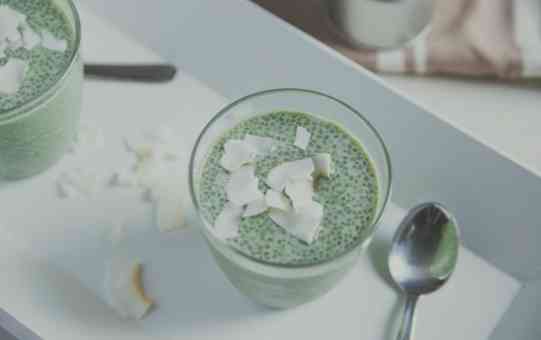Are you interested in trying can you add lemon to matcha tea? Discover the ideal method to infuse this tangy citrus taste into your matcha experience. Dive into the advantages, various flavor combinations, and more in this detailed guide.
can you add lemon to matcha tea? Putting a little lemon in your matcha might be just what you need to make it more interesting. Here we will talk about adding lemon to matcha tea. So, get your matcha whisk, and let’s get started!
Contents
Can You Add Lemon to Matcha Tea?
Do you want to know if you can add lemon to matcha tea without changing the way it tastes or how good it is? Yes, that’s the clear answer!
Adding lemon to matcha tea not only gives it a bright citrus taste, but it may also be good for your health in many ways. To make sure the flavors go well together, you need to find the right mix.
Benefits of Adding Lemon to Matcha Tea
Before we get into the details, let’s look at some of the possible benefits of mixing lemon and matcha tea:
Enhanced Antioxidant Power: Matcha tea is known for having a lot of antioxidants, and lemons are full of vitamin C. Together, they make a powerful antioxidant. By mixing the two, you might be able to boost the antioxidant power of your drink as a whole.
Aids in Digestion: Lemon is known to help with digestion, and adding it to matcha tea can help keep your digestive system in good shape.
Vitamin C Boost: Lemons are a great source of vitamin C, which helps keep your immune system strong and your health in general in good shape.
Refreshing Flavor: The zesty citrus notes from the lemon can give the earthy taste of matcha tea a refreshing and tangy change.
Now that we’ve talked about the possible benefits, let’s find out how to add lemon to matcha tea in the best way.
Ways to Incorporate Lemon into Matcha Tea
1. Squeezing Fresh Lemon Juice
If you want to add lemon to your matcha tea, the easiest way is to squeeze fresh lemon juice right into your cup.
Start by mixing your matcha powder with hot water until it becomes foamy. Then, squeeze the juice of half a lemon into the tea. Stir slowly to mix the spices together. Change the amount of lemon juice to suit your tastes.
2. Lemon Zest Infusion
Try putting lemon peel in your matcha tea to give it a more subtle lemon taste. While mixing, grate the peel of a lemon and add it to your matcha tea. Let the flavors mingle for a minute before you try the fragrant and sour mixture.
3. Lemon Slice Garnish
If you want your matcha tea to look nicer and taste better, you can add a thin slice of lemon as a garnish. As you sip the tea, the lemon slice will give it a bit of citrus flavor, giving it a nice burst of flavor.
4. Lemon Matcha Smoothie
Blend matcha tea with freshly squeezed lemon juice, a frozen banana, and a splash of almond milk for a refreshing and energizing change. This creamy, fruity matcha smoothie is great for a hot summer day or as a drink to wake you up in the morning.
Now that you know some fun ways to add lemon to your matcha tea, let’s look at some flavor mixes that go well with these two bright flavors.

Flavor Combinations with Lemon and Matcha Tea
1. Lemon-Ginger Matcha
Use the power of ginger and lemon by putting them together with matcha tea. You can make a tasty and energizing drink by grating fresh ginger and squeezing lemon juice into your matcha tea.
2. Lemon-Honey Matcha
Citrus is sour and honey is sweet, so they go well together. Add a drizzle of honey and a splash of lemon juice to your matcha tea for a delicious mix of tastes.

3. Lemon-Mint Matcha
Add the cool and pleasant taste of mint leaves to your matcha tea. Squeeze some lemon juice into your matcha and tear up a few mints leaves to add a fresh and fragrant twist.
4. Lemon-Coconut Matcha
By adding coconut milk or water to your matcha tea, you can get the tropical taste of coconut and the tang of lemon. Squeeze in some lemon juice to finish off this blend of foreign tastes.
With these flavor mixtures, you can make matcha tea that fits your tastes and gives you a new sensory experience.

Conclusion
Adding lemon to matcha tea is a great way to try new tastes and get more out of matcha. Whether you use fresh lemon juice, or lemon zest, or try different taste combinations, this zesty citrus addition can give your favorite green tea a refreshing twist.
Make sure to find the right mix between the flavors so that the lemon and the earthy notes of the matcha work well together.
Read Also:
Can You Add Lemon To Green Tea?
can you cook fish with lemon juice?
FAQs about Adding Lemon to Matcha Tea
Here are a few FAQS related to can you add lemon to matcha tea:
Can you add lemon to matcha lattes?
Absolutely! Adding lemon to matcha lattes is a great way to introduce a tangy flavor profile to your creamy and frothy beverage. Simply follow the techniques mentioned earlier and enjoy your citrus-infused matcha latte.
Can lemon affect the quality of matcha tea?
When used in moderation, lemon does not compromise the quality of matcha tea. However, it’s essential to find the right balance to ensure that the lemon flavor complements rather than overwhelms the delicate taste of matcha.
Can you add lemon to iced matcha tea?
Yes, adding lemon to iced matcha tea can be a refreshing option. Squeeze fresh lemon juice into your chilled matcha tea, add ice cubes, and stir gently. The result is a revitalizing and citrusy iced matcha drink.
Can lemon mask the bitterness of matcha tea?
Lemon’s vibrant acidity can help balance the bitterness of matcha tea. If you find matcha too bitter for your liking, adding a touch of lemon can offer a pleasant counterbalance.
Can you add lemon to ceremonial-grade matcha?
While ceremonial-grade matcha is traditionally enjoyed on its own, there’s no harm in exploring flavor combinations. Adding lemon to ceremonial-grade matcha can create an interesting and unexpected twist.
Can lemon affect the color of matcha tea?
Lemon juice can slightly alter the color of matcha tea, causing it to appear slightly lighter. However, the change is usually minimal and does not significantly impact the overall visual appeal.

